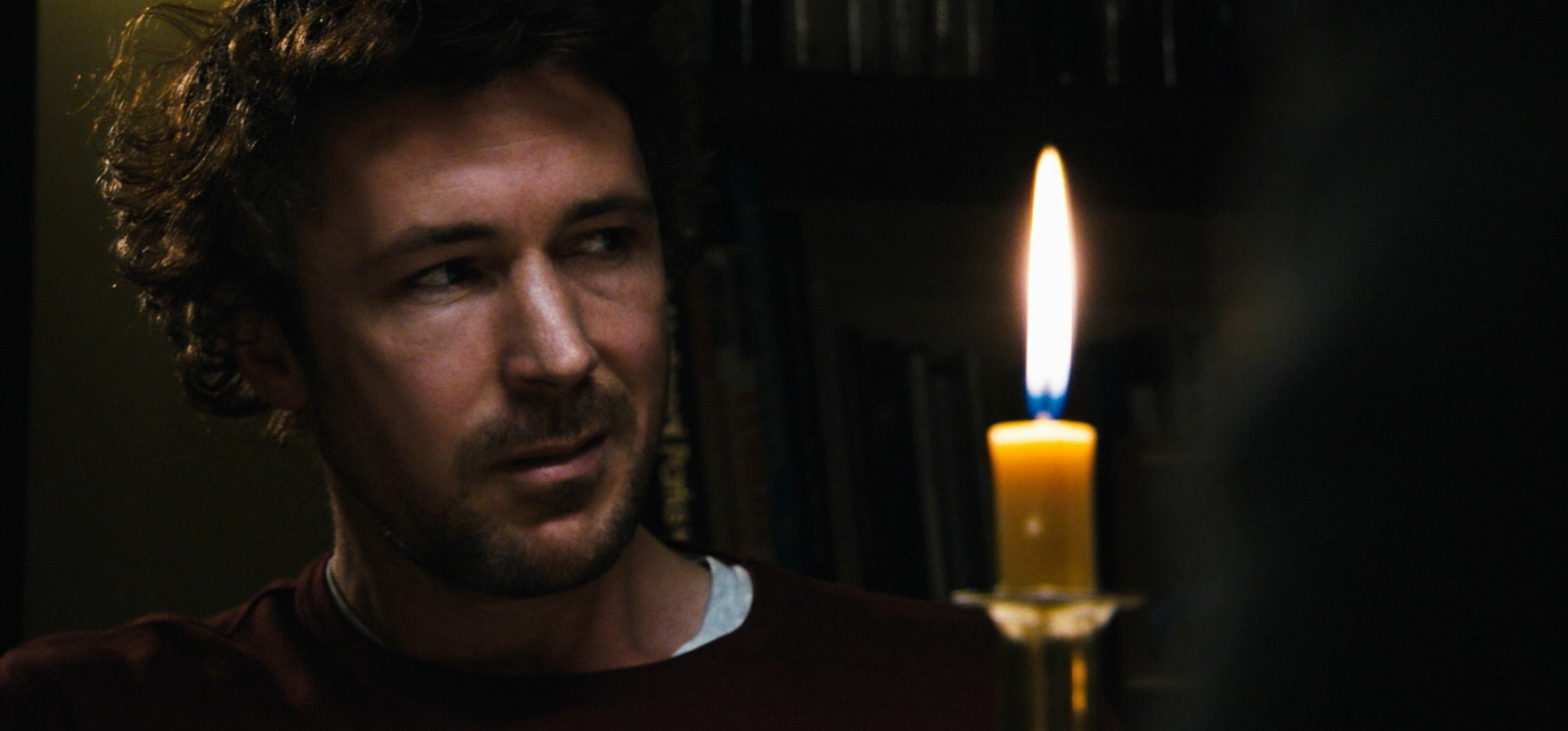Wake Wood
The woods have, er...awoken.

Stop… Hammer time!
Perhaps wisely the newly resurrected Hammer brand has slipped stealthily under your radar, electing to sneak up from behind with the low-key, low-budget effort Wake Wood; a film that aims to recapture something of the essence of glories past while at the same time granting concession to the modern, shot-on-digital down and dirty aesthetic. Hammer, it seems, has learned that if you can't beat 'em in Technicolor then you might as well join 'em in editing on a Mac in your back bedroom.
Of course I doubt that's technically quite the case, but Wake Wood heralds the rebirth of a studio with, appropriately enough, a tale of rebirth. Of sorts. Aidan Gillen and Eva Birthistle are Patrick and Louise; a middle class couple, vet and pharmacist respectively, who recently lost their young daughter to a savage dog attack. In the tradition of such things they seek solace in a change of scenery, moving to the sleepy town of the title in hopes of leaving behind their demons and repairing their fragile relationship. So far so predictable.
Predictable eccentricities of the local population aside, Patrick and Louise first get a taste of quite how odd the town can be when they happen to witness a late night pagan-esque ceremony, leading to an unexpected visit from town spokesperson Arthur (the ever reliable Timothy Spall). Arthur can, he assures the couple, offer them three more days with their dead daughter, so long as they are willing to settle permanently in Wake Wood and not attempt to flee the town with their reanimated offspring. You may well assume things might not go entirely according to plan, and you'd be right.
Wake Wood is an interesting beast in many ways, and almost in spite of itself it provides much to enjoy. The plot is, of course, as daft as you might expect, owing much to such paedophobic classics as Don't Look Now and, most noticeably, pastoral paranoia such as that of The Wicker Man. My view on this, and I suspect I'm not alone, is that if you knowingly settle down to watch a film in which you are told a couple will allow Timothy Spall to resurrect their deceased daughter on a farm surrounded by people banging sticks then you'd damn well better be prepared to just roll with it. In doing so you will be turning a blind eye to many improbabilities, from the lack of any outside interference with (or indeed knowledge of) local practice, via the bat shit mental modus of the ceremony itself, to the almost nonchalant and certainly unquestioning way with which the couple accept the very possibility of the act itself.
"Would you like your dead daughter back for three days?"
"Mmmm, okay then. Why not?"
"Let me see what I can do. By the way, don't try to take her away or she'll melt."
"Okay."
Honestly, and I say this with a certain fondness, there are moments where the stage curtains of Wake Wood threaten to blow wide open, and once or twice there are glimpses of performance that seem to have crept in from the truly risible theOneliner "favourite" Devil's Gate. Look past that and what keeps it together are a pair of very committed central performances from Gillen and Birthistle, and a truly reserved stint from Spall that may only have been necessary due to budgetary constraints forbidding the replacement of any scenery, but let's give him the benefit of the doubt anyway. To the credit of director David Keating there are no cheap "loud, stabby musical cue" jumps to speak of, and while his might not be the surest of hands he just about manages, along with the assistance of his primaries, to keep the thing together.
As noted earlier there's a fairly heavy-handed motif of rebirth running throughout the film, but to talk about that seems remiss when instead I can mention that a man gets bloodily crushed by a bull's arse. All in all I kind of enjoyed Wake Wood, and I await further Hammer developments with intrigue.
Eva Birthistle (Louise)
Timothy Spall (Arthur)